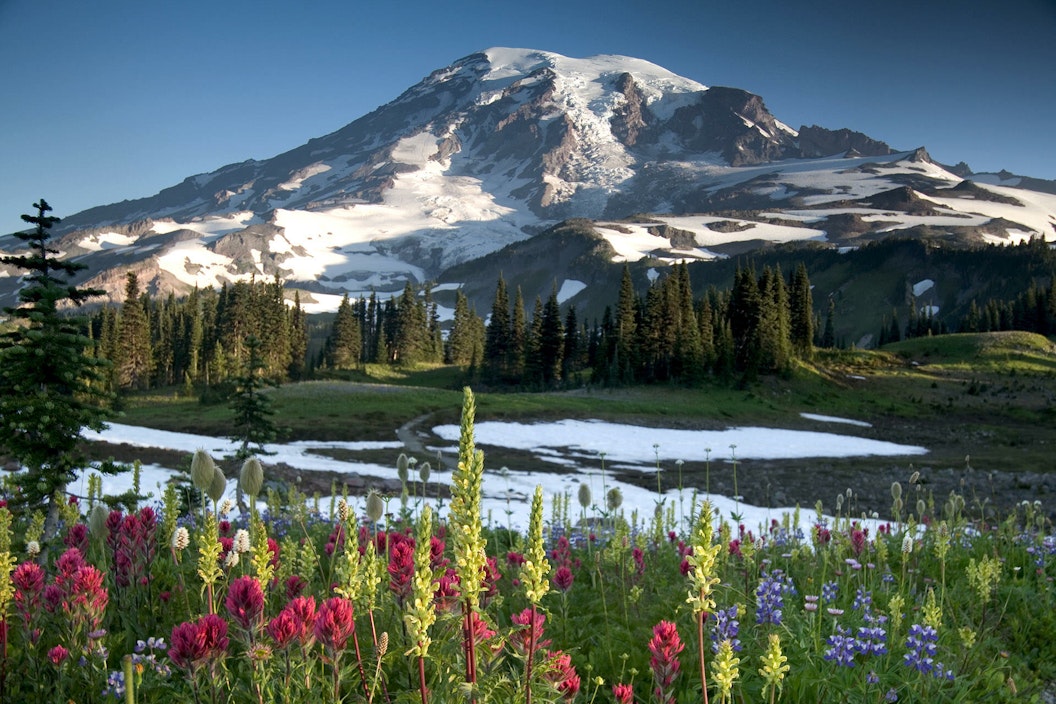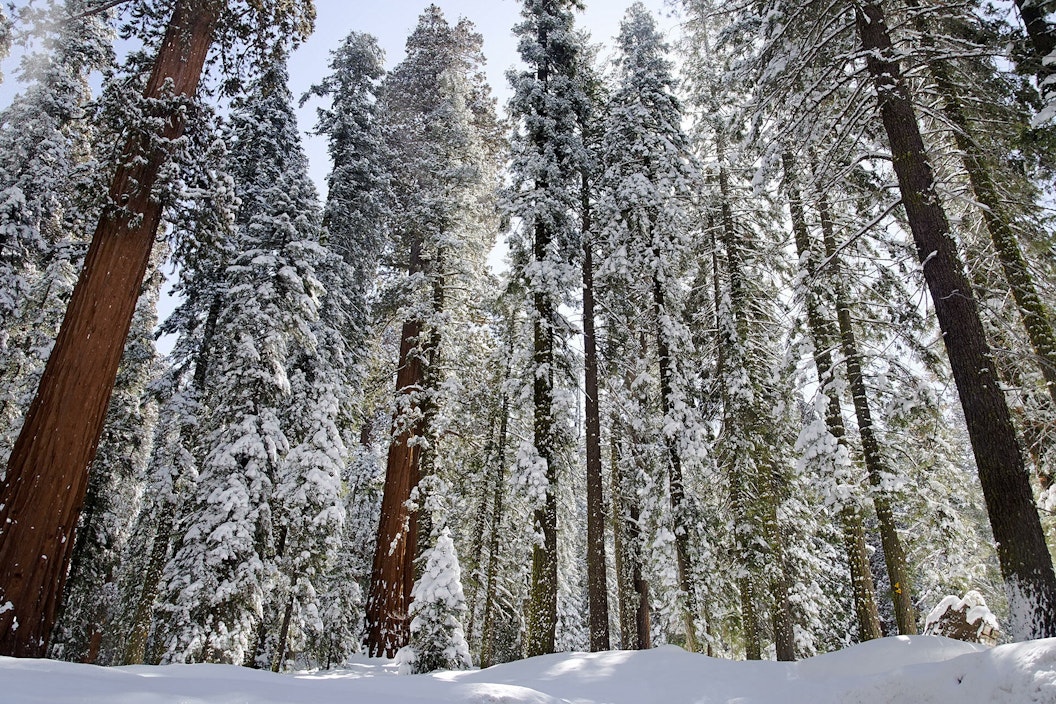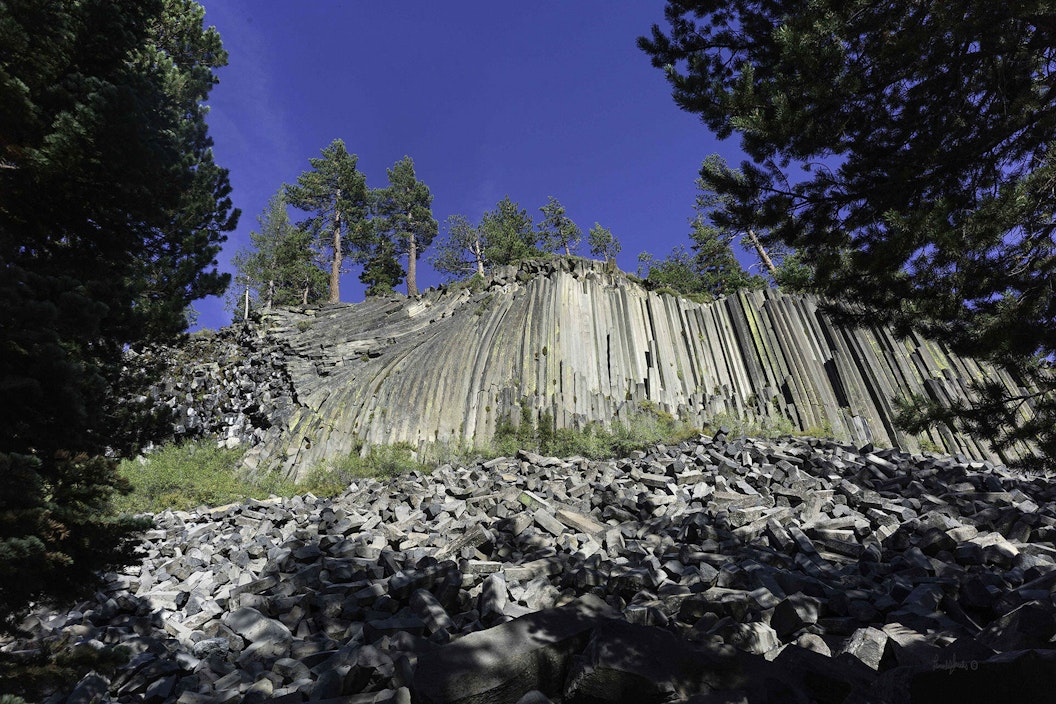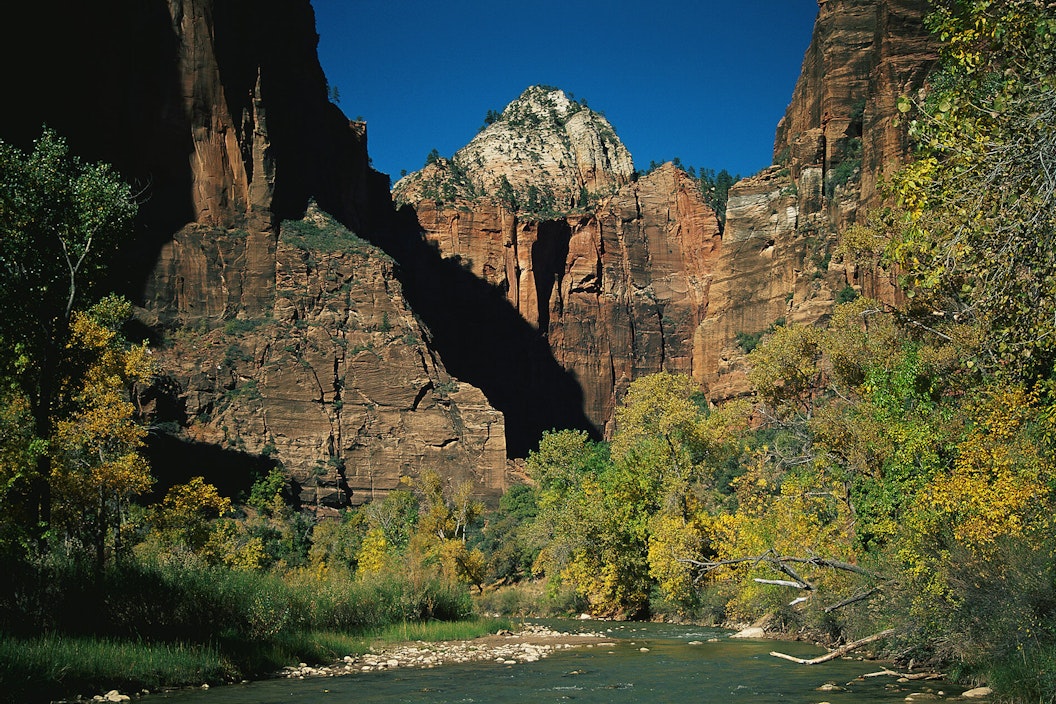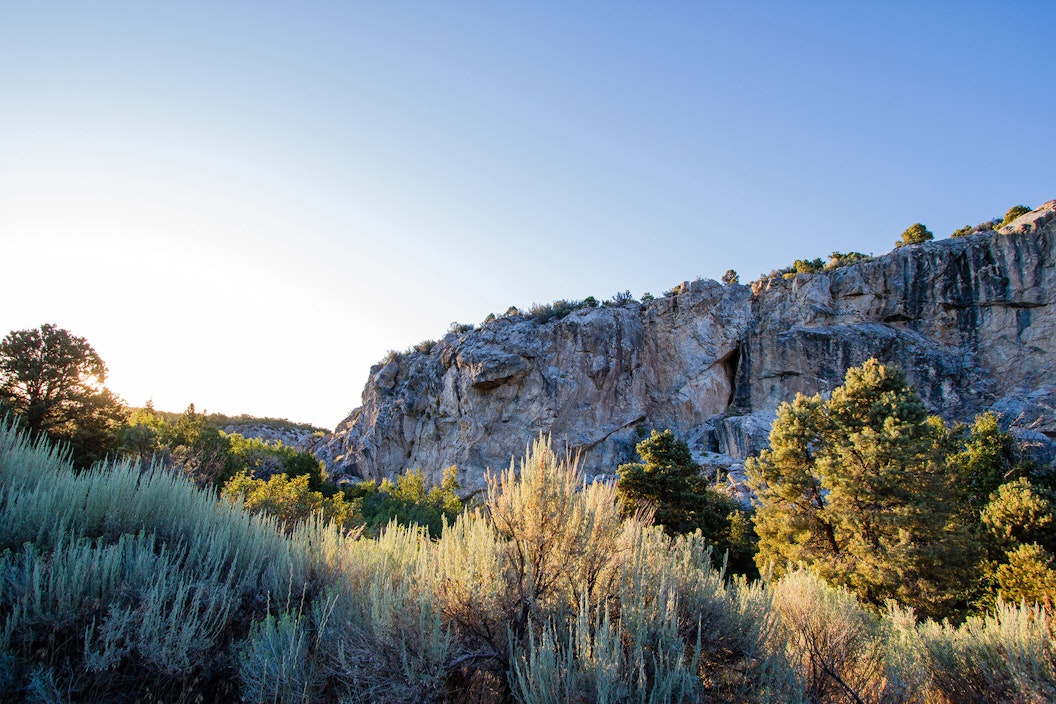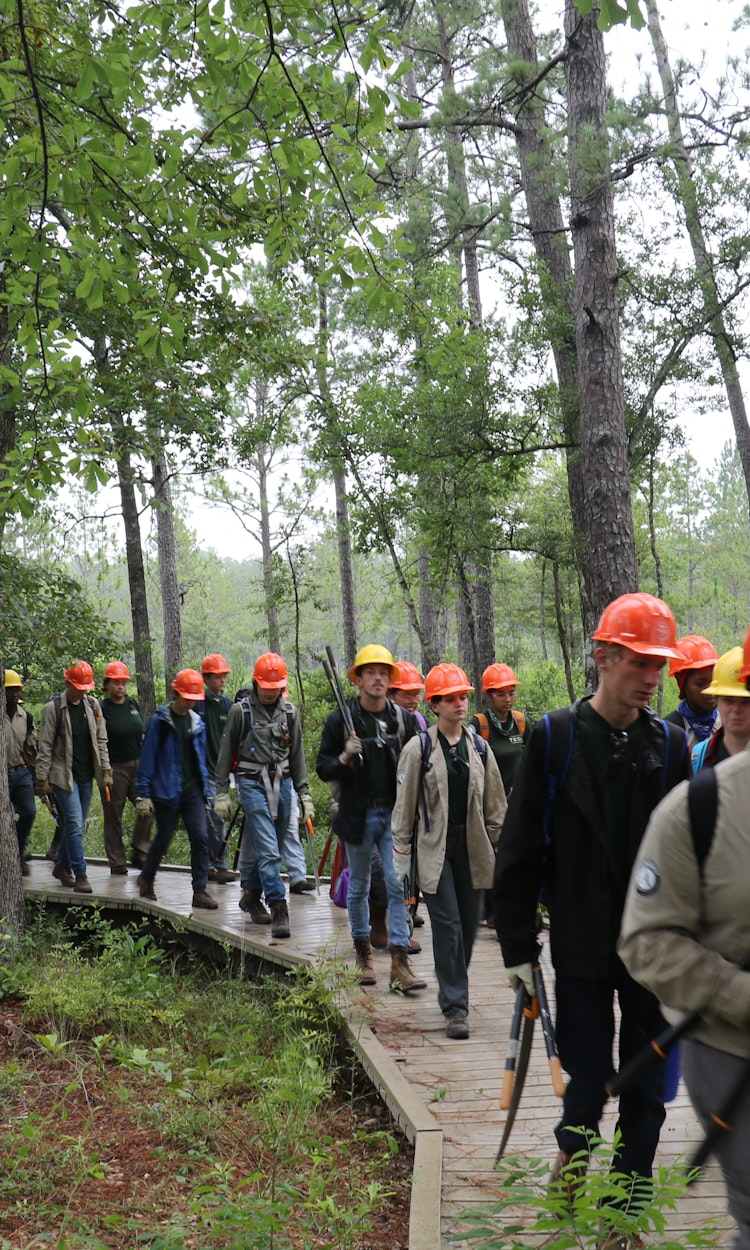
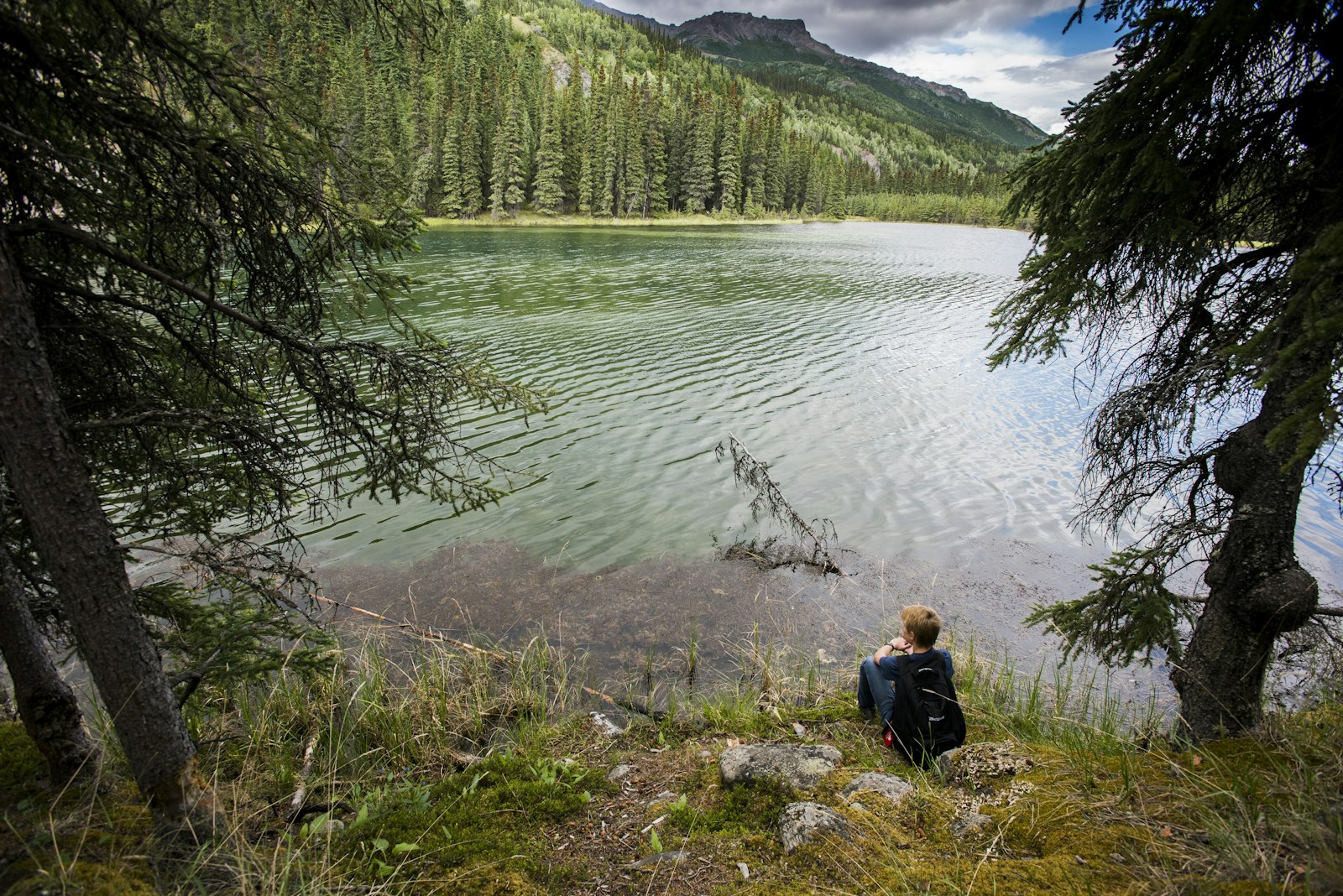
.
.
The National Park Foundation is dedicated to connecting people of all identities to the boundless adventures, lessons, and experiences that national parks offer.
One way that NPF connects people to parks is through our support of service corps programs. Since 2018, NPF has invested more than $11 million to support more than 130 service corps crews, helping to bring people of different ages, backgrounds, and abilities together to accomplish critical maintenance projects in national parks. During their terms, service corps members gain technical and leadership skills while forging bonds with their fellow crew members and developing a sense of belonging in these outdoor spaces.
NPF funding supports an array of partners that deploy single-identity service corps crews, which help people feel safe and comfortable as they explore parks and possible career paths. These include LGBTQ+, American Sign Language, Latinx, Women, and Native American crews.
We spoke to young leaders who recently participated in NPF-supported LGBTQ+ service corps crews at parks across the country. Learn how their experiences at national parks left indelible impressions that will help to shape their personal journeys far beyond their service corps terms.
Meet Mel Hanby
Mel (he/him/his) served with the Northwest Youth Corps NYC-NPS Inclusive Conservation Crew at parks in Oregon and Washington.
How is your personal journey interconnected with national parks?

My first real extended outdoor experience (more than a few nights camping) was a life-changing five weeks with the Northwest Youth Corps’ first LGBTQ+ inclusion crew when I was sixteen. I knew nothing about trail work, only that this was an opportunity to be with other queer people, and I would not pass that up. That summer I met other transmen for the first time in my life. I also fell in love with trail maintenance. The experience set me on a course in the outdoor field, leading me to crosscutting downed trees on the Washington Canadian border, co-leading the LGBTQ+ inclusion crew at Mount Rainier National Park, speaking at the LGBTQ+ Outdoor Summit in Colorado with NPF and partners, and pursuing my college education in beautiful Southern Oregon where I now hike, kayak, and rock climb whenever I can. Next year I plan to graduate from Southern Oregon University with a degree in communication and minors in outdoor adventure leadership and Spanish. I am planning to continue my education through grad school where I want to study risk communication in outdoor fields. I want everyone to be outside and plan to make outdoor spaces more accessible and safer by improving communication between professional entities and people who spend time on public lands.
What has been your favorite part about participating in a LGBTQ+ service corps crew?
Without the Northwest Youth Corps and my time co-leading a crew in Mount Rainier National Park, I do not know if I would have ever pursued the path I am on now. For me and many other queer people, public parks and lands are areas where the pressures of maintaining a socially acceptable appearance and lifestyle fall away. To this day, leading queer youth has been the most difficult and rewarding challenge of my life. It is painful to see youth dealing with depression, rejection, and discrimination based on their identities. It was painful to be that youth. I was lucky to have met queer adults through my youth corps experience, and even more lucky to be a queer adult in someone else’s life. The opportunity to be in nature, especially working in nature, filled me with not only self-confidence that I can survive and thrive without looking or acting a certain way, but also a sense of duty to share these places with others. I encourage all people to get involved with outdoor work, recreation, and knowledge. This knowledge includes recognizing the indigenous stewards of the lands we occupy and actively rallying for their voices to be heard in the discussion of public land management.
What advice do you have for someone interested in participating in a service corps program?
My advice to anyone thinking about joining a service corps is to not overthink it! Trust yourself and be okay with not knowing all the details. I assure you it will be worth it in the end.
Meet Sam Indigo Parker
Sam (they/theirs) served with Eastern Sierra Conservation Corps LGBTQ + crew in Sequoia & Kings Canyon National Parks.
How is your personal journey interconnected with national parks?
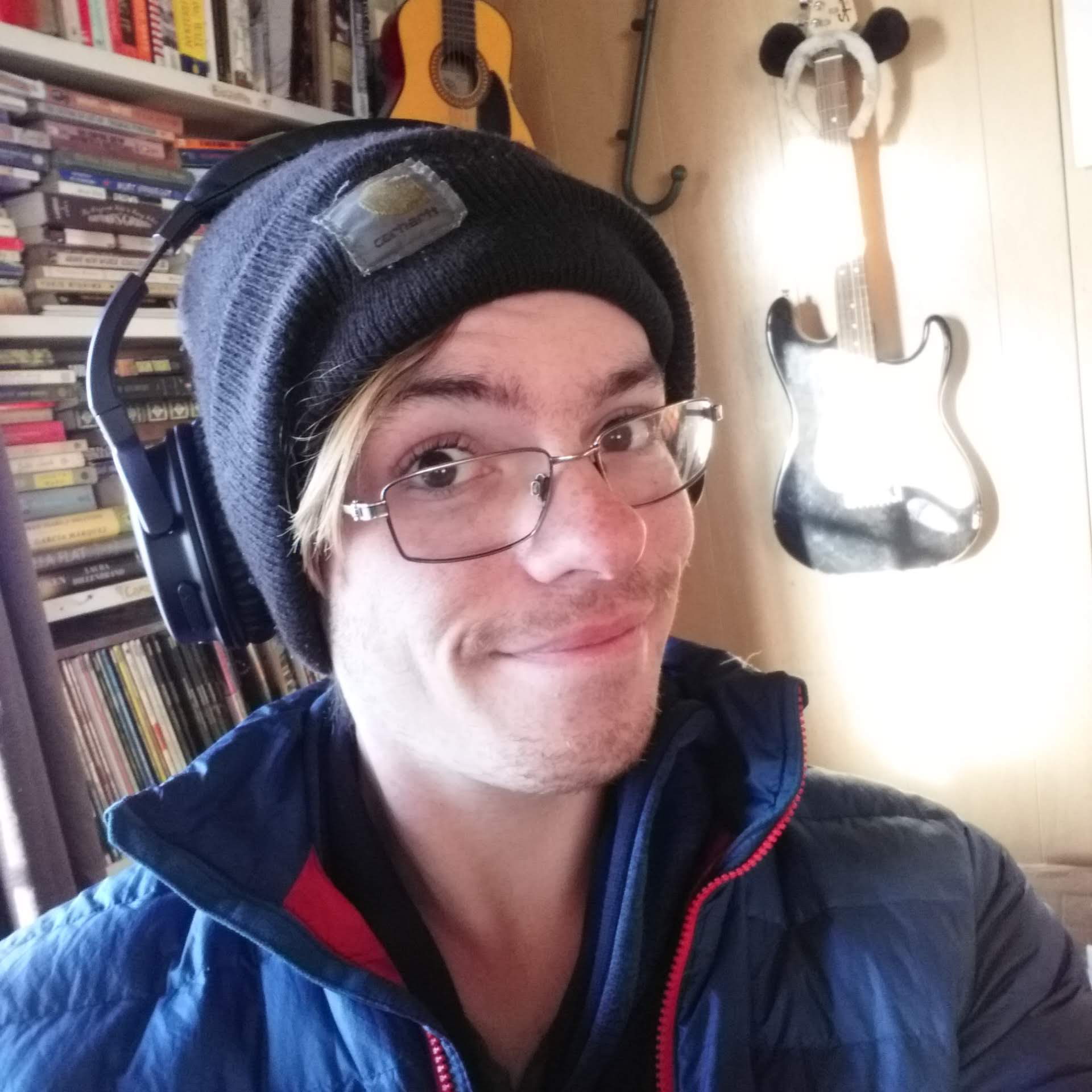
Hello! My name is Sam Indigo Parker, my pronouns are they/theirs. I'm 24, and I'm a queer nonbinary person. I make music, by guitar and by laptop, I like plants and bugs and things, and I like to help people remember to be alive.
My relationship with national parks started when I was a kid, mostly with Lassen Volcanic National Park, which is less than 45 minutes from where I grew up. Since then, I've worked and lived in a couple parks and been to a few more!
Can you please share a bit about your experiences in national parks?
I'm really grateful that I've had so many opportunities to live in national parks, and to help maintain the trails that run through them. It's allowed me to find a lot of peace, to experience life in the moment and see all sorts of plants and critters. As I write this, I'm surrounded by Giant Sequoias in Redwood Canyon, a beautiful watershed in Sequoia & Kings Canyon National Parks.
I think it's wonderful that we can come and see old growth forests, mountains too big to see all at once, but I also think it's a shame of my and our ancestry that we've named so much after men who often never set foot in the places named for them.
As I learn more about the history of these places before white settlers and about the Indigenous people who, past and present, nurture this land, I become jaded with the ways we as colonizers look at these parks as belonging to us and the ways our ancestors displaced and killed Indigenous people in order to "preserve" places.
It's a deeply nuanced relationship, but at the peak of it I wish we would change the way we think about these places as belonging to the public, and rather talk about the ancestral and current homes of Indigenous people, and as places full of life that have the right to exist outside us.
Can you describe your service corps experience?
I joined the California Conservation Corps (CCC) in early 2017. My supervisor, Terrance Johnson, taught me dry stone masonry (rock work) in the Eldorado National Forest over 6 hard months. That crew was really my first time being a part of a community outside my family. I stayed in the CCC through the following winter and spring, and in 2018 I was accepted into the Backcountry Trails Program. My season was in Kings Canyon National Park, where mostly what we did was rock work. After that I went back to Redding as a crew leader for 5 or 6 months.
In 2019, I joined the Eastern Sierra Conservation Corps (ESCC), on the WILDlands Technical Crew - a program designed specifically to get corps members leadership development skills. That year I worked in Los Padres National Forest and Devils Postpile National Monument. In 2020 I did another season of WILDlands in the Inyo National Forest. We moved to a different site every week or two, which was a great and diversified way to spend a season. This year I'm in WILDlands again, this time on ESCC's first ever all-LGBTQ+ crew, working in Kings Canyon National Park - back where I had my first real backcountry home!
What inspired you to pursue participating in a service corps program?
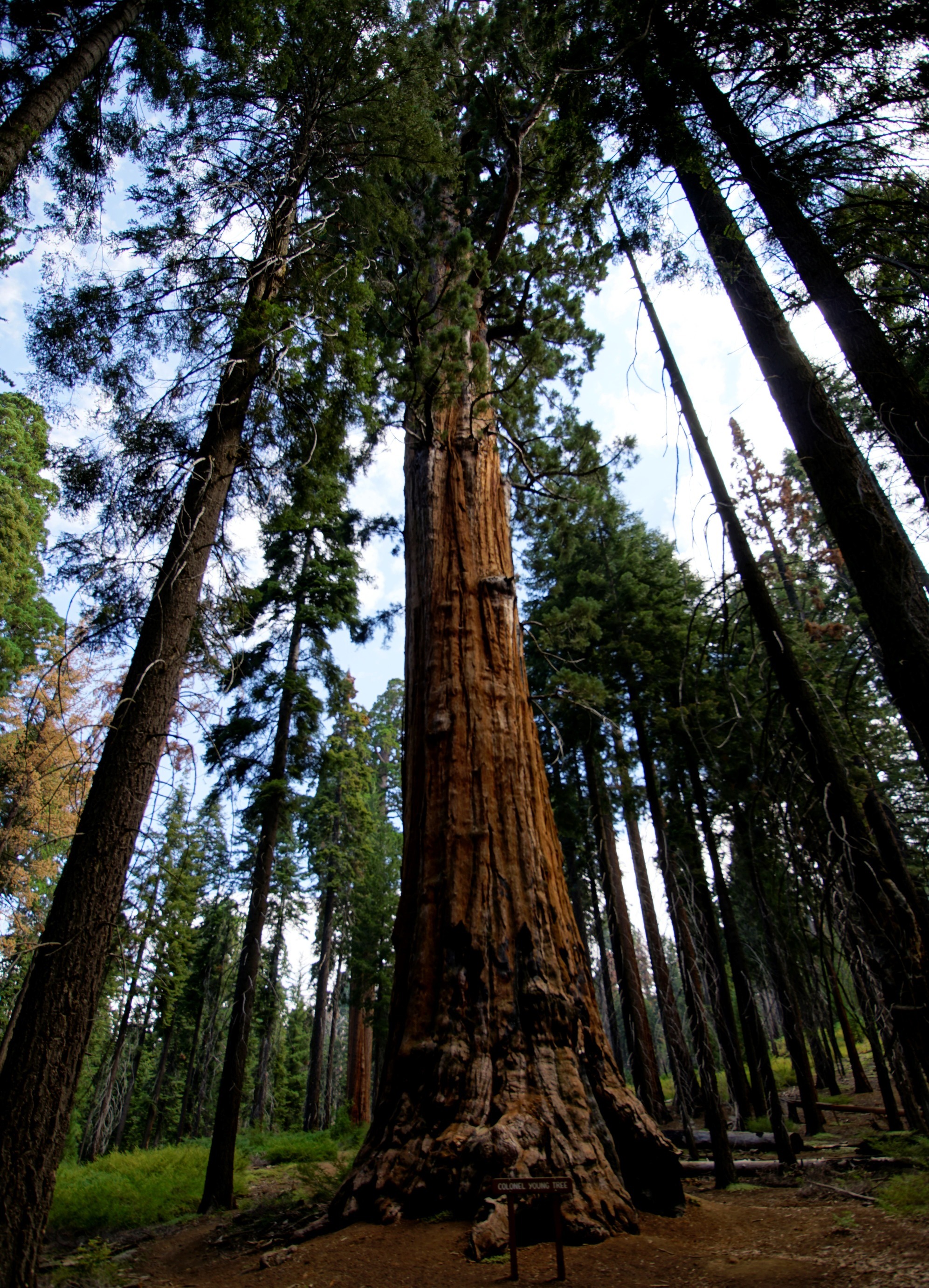
My dad, George Parker, was a corps member, Backcountry Trails Program alumni, crew leader, and supervisor in the CCC, and worked for the National Park Service to sponsor the 1989 BCTP crew in Kings Canyon National Park. I grew up hearing all kinds of stories about the CCC. When I was 19, like a lot of 19-year-olds I found myself in need of a job, and with a slight nudge from him, I decided to join the CCC; just for a while to save up some money.
Obviously, I instead fell in love with outdoor work, and so here I still am! My dad has continued to give me a lot of encouragement and support along the way, and although he'd tell you I came to it in my own time, I don't think I ever would have gone into conservation work without his influence and encouragement.
Why are LGBTQ+ service corps programs important?
I'm loving being on this crew! While I have had some coworkers in the LGBTQ+ community in the past, up until ESCC the people I worked with and for were predominately white men. And with that almost always comes a familiar, if not traditional, perspective of conservation and history that is beholden to the systems of money, power, and ownership that we are accustomed to in the U.S. Even if some of these folks were aware of it and trying to change it, it was usually in tiny, gradual steps that ultimately upheld the status quo.
This crew is made up of people with very different perspectives of culture, land, and legislation; people who don't benefit from established systems the ways those white men do, and so are less inclined to tiptoe around them to avoid making waves. We're not just coming out here to keep human impact on the land low, we're also here to help each other learn more about the parts of the world you don't see on TV or on park signs.
With this kind of intentional community, we're able to find more nuanced relationships and solutions. We're able to more earnestly express our thoughts and experiences without so much of the worry that someone who's never seen our side of the coin is going to talk to us about legislation and "protections" that only really protect them. And in that way, we can get a lot further in the conversation about actual, actionable change - within conservation work, but also within society at large, and within ourselves.
What have you learned from your experience?
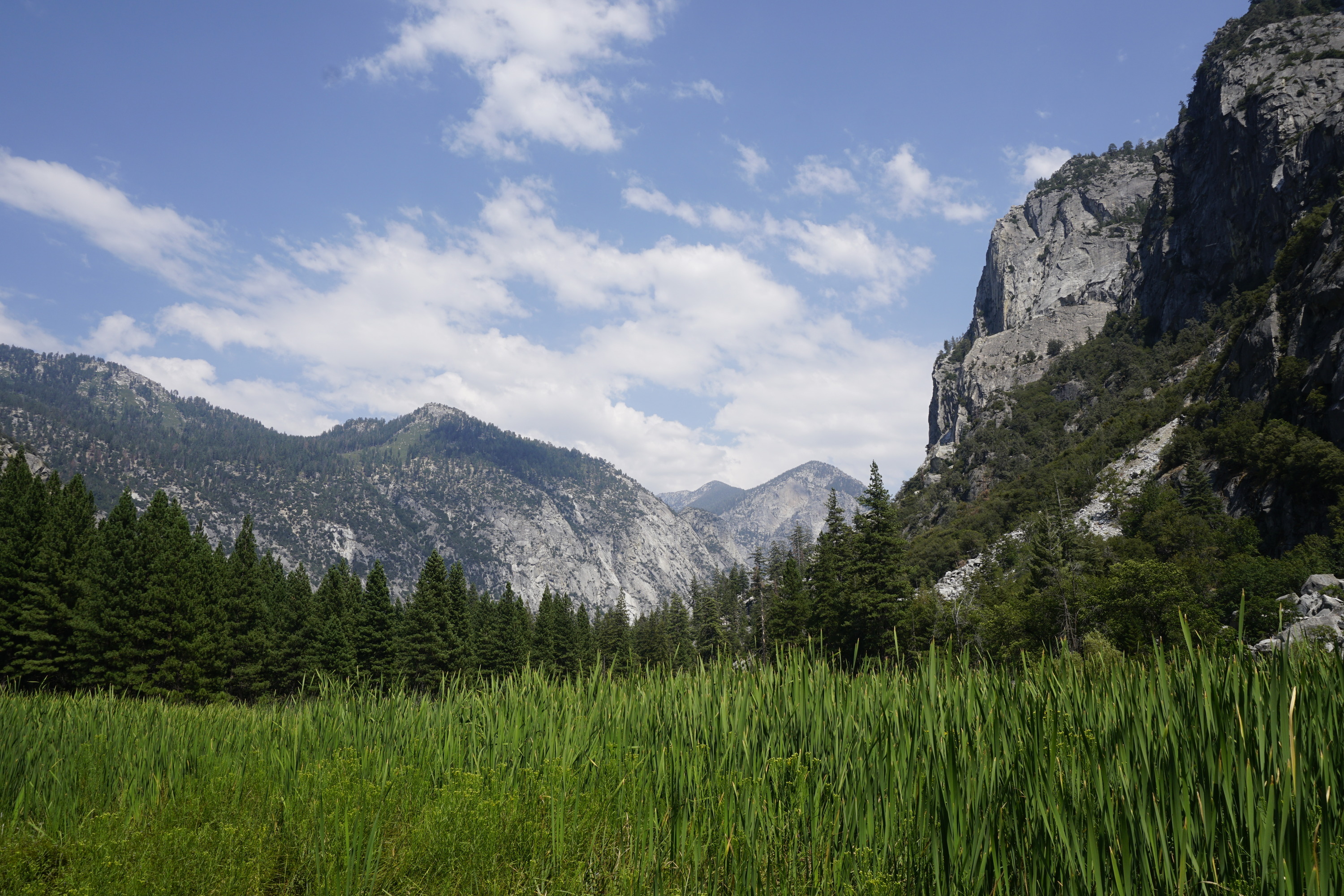
I feel my most proud when I see someone learning on their own, in their own way. Seeing corps members get excited about their efforts to care for these places, seeing them connect to the land and to each other in deeper ways than they knew they could before, and knowing I at least handed them some tools to make that happen; that sticks with me every time.
I've learned that community and communication are not only part of the human experience, but part of the experience of being alive. Every living thing exists in relationship to other living things, and to the dirt, and the water, and the sky. It's pretty often that those relationships hurt, or cause discomfort, and I spent a long time stuck in the illusion of individuality because of that. But no matter what form these connections take, they are there, and I've learned it does a mind and soul good to foster good relationships in forming communities.
What are your future career goals?
I want to stay involved in conservation, but I'm also taking steps toward community organization. I want to help and support queer people in places that maybe don't have that kind of community support. I'm not sure what form that will take yet, but I want to find more ways to get the two to meet!
What advice do you have for someone interested in participating in a service corps program?
With so many of our systems seemingly locked into the way they are, I think a lot of people outside the cisgender, heterosexual, white, and patriarchal communities feel discouraged to enter or even feel unwelcome in outdoor work. To them, I want to say that the only way our nation's gentrified and oppressive ways of looking at nature are going to change is if we don't surrender to it.
To the people who want to challenge the status quo by challenging themselves, know that we are here in the conservation world, and you're not alone; the more of us, the better.
Meet Kodiak Rider
Kodiak (he/him) served with The Great Basin Institute’s Nevada Conservation Corps in Great Basin National Park.
Tell us a bit about yourself. How is your personal journey interconnected with national parks?
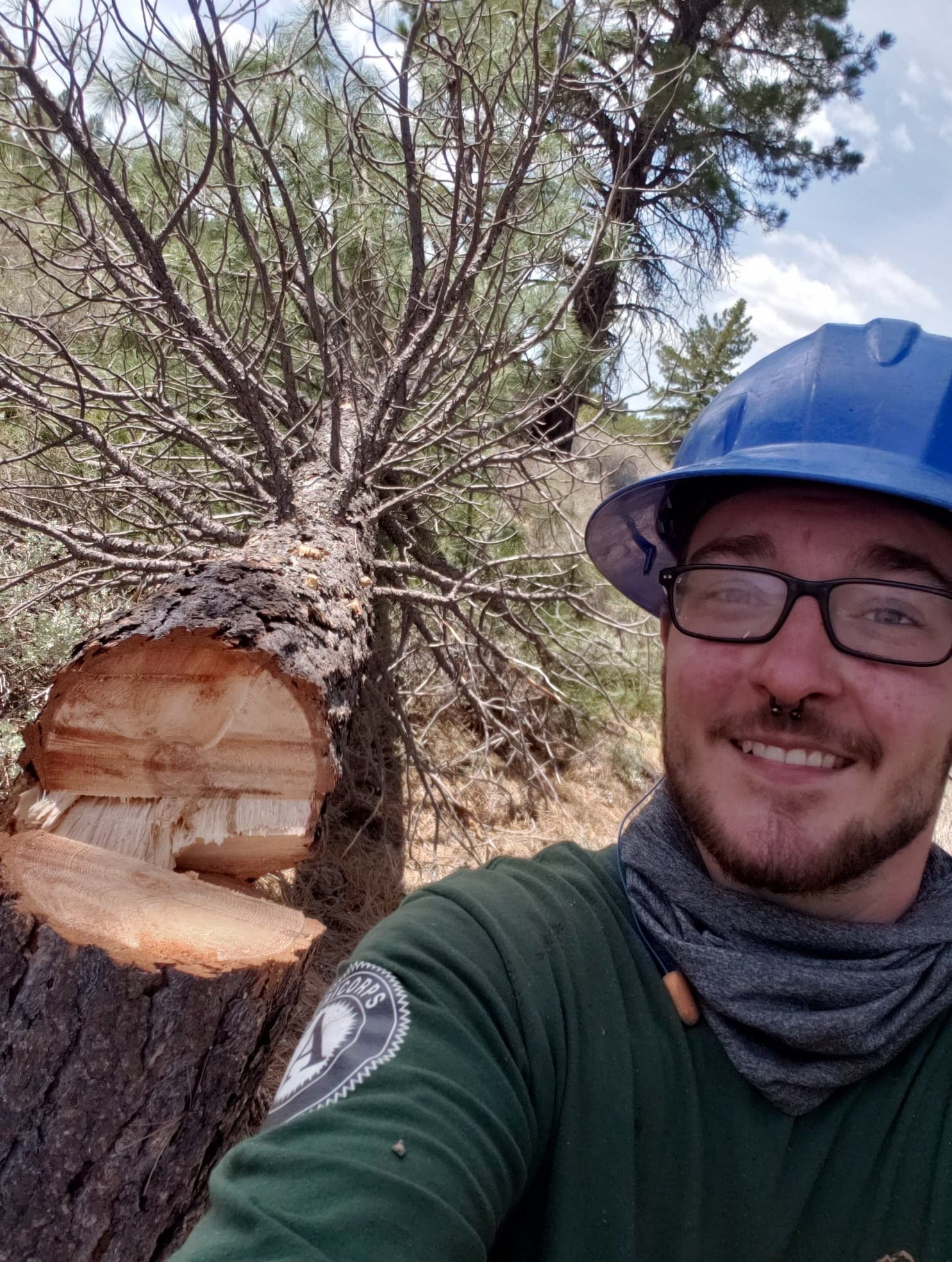
I grew up on the central Oregon Coast, and remember spending a lot of my summers with my parents and grandparents, traveling to different state and national parks. As I got older and began to come out to them as a bisexual transgender man, I felt a rift form between us.
I moved to Las Vegas at the beginning of my transition, and once there I instantly fell in love with the desert. The parks and conservation areas in the southwest helped me discover myself and heal through recreation and simply taking in their beauty. As my confidence returned in having found myself, so did my relationship with my family. They came to love and accept Kodiak, and even my now fiancé, who I proposed to at Zion National Park, even if that meant I was in a gay relationship.
My grandparents have since passed but I know they are proud of me and the path I am on. I know they will be with me in spirit at all the national parks I explore and get to work at in the future.
Can you please share a bit about your experiences in national parks?
Experiences in national parks often leave me feeling full of awe and inspiration. The incredible landscapes alone, carved or formed over thousands of years, the grand scale and size of the features of the land, it makes me feel so insignificant in the most humbling of ways. It also fills me with a passion to try and protect and preserve it, and I feel a deep responsibility to do so. There are so many places I wish to explore, but I always find myself desiring to go back to national parks again and again simply because they are that breathtaking.
Can you describe your service corps experience and some of the projects you worked on?
For most of my service corps experience so far, I've worked on trails, participated in Great Basin Institutes Leadership Development Program and am currently leading Nevada Conservation Corps dedicated Great Basin National Park trail crew. It’s been both very challenging and very rewarding. It can be hot, it’s most certainly dirty, but there is nothing more satisfying than a beautiful trail that you’ve helped to create or maintain that week. I’ve learned many soft and hard skills alike. I’ve pushed my limits both physically and mentally, and really feel like I have grown as a person from having participated in NCC. As far as my favorite tool, I would either have to say the pulaski or the chainsaw.
Why are LGBTQ+ service corps programs important?
While my crew is not entirely LGBTQ+, two on my crew have been open with me about being so and it has been such a pleasure to meet, connect, and support one another on topics both related and not. As a crew lead, it’s wonderful to see younger generations, especially LGBTQ+ youth grow and flourish and chase their dreams.
What do you enjoy most about the service corps program? What was one of the biggest challenges?
My favorite thing about working for Nevada Conservation Corps is visiting all the different locations and really exploring and getting to know the state inside and out. I have seen beautiful places I may not have been able to go otherwise and can say I’ve worked in some amazing locations.
The biggest challenge for me I think would be, being away from my fiancé and cat for a week or two at a time. Not showering, hiking with tools for a couple miles doesn’t bother me, but by the end of the week I’m missing my loved ones at home.
What accomplishment from your service corps time are you most proud of?

I think I am most proud of all the work I have done out at Kershaw-Ryan State Park, in Caliente, NV. My first season my crew of 3 people completed .3 miles of full bench cut trail in a week, and another time we spent 8 days installing some rock for tread armoring, which involved moving a 2-ton boulder in one section. That boulder will probably remain there forever, and I will always remember those few days and people I worked with to get it there fondly.
What are your future career goals?
It would be the absolute dream to work on a trail crew or fire mitigation crew for the National Park Service. If I had a choice, a park somewhere closer home, like perhaps in Northern California, Oregon, or Washington, that would be incredible.
What advice do you have for someone interested in participating in a service corps program?
Start young and take every learning opportunity your service corps has to offer and never give up on your dreams. I lost track of mine and I made the mistake of being indecisive and not really knowing what I wanted to pursue as a career field. Now that I’ve rediscovered my passion, I wish I hadn't wasted so much time. However, I’m entirely thankful to finally be on this path, and continue to cut this trail for my future. It’s never too late, but it helps to start young! Know it will be hard, but if you keep an open mind, know also that you will grow in ways you didn't know were possible!
Related Programs
-
 Service Corps
Service Corps

